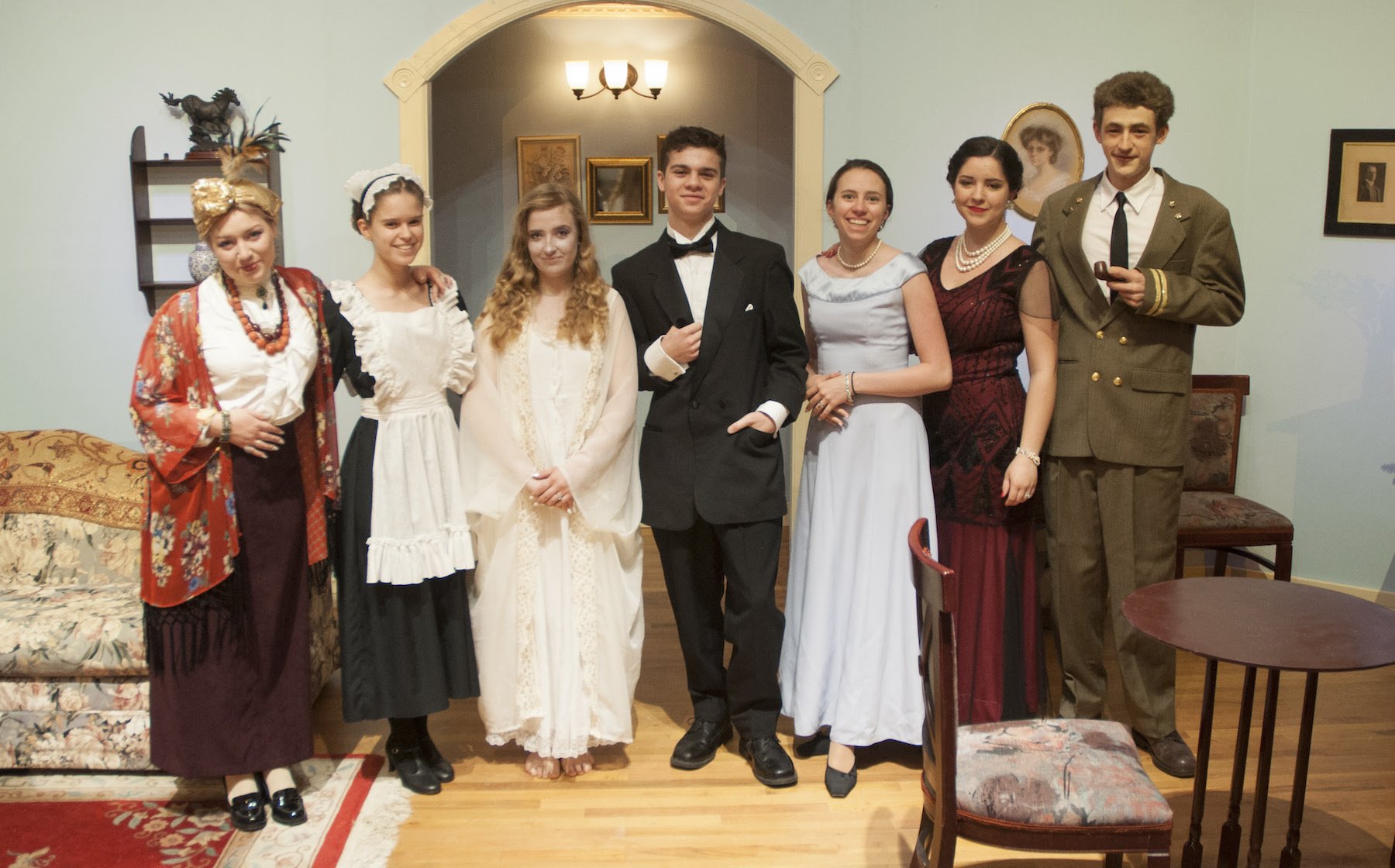The Play's the Thing
At the Emerson Waldorf School—and many Waldorf schools worldwide—class plays are a yearly occurrence, often put on for the wider school community. The plays increase in scope and difficulty as the students age--for example, a typical first-grade play might last 30 minutes and include no solo speaking parts. In contrast, many 8th grade classes tackle a Shakespeare drama. The 12th-grade play—typically large in scale—can be seen as a capstone moment for the class. Each performance is the culmination of an intense period of line-learning, in-school rehearsals, and rigorous set-building. In the case of older students, the line memorization becomes homework, and rehearsals can run after school.
The practice of doing a yearly or near-yearly class play deviates from the more mainstream approach found at typical public schools, where theater is considered more of an elective than a core discipline, something students can opt into if they so choose. However, Emerson believes the benefits are too great to limit to the self-selectors, thus building drama directly into the curriculum. Speaking from experience, I am thankful for the years of class plays (11 in sum!) at Emerson. Indeed, many of my fondest memories trace back to rehearsals and performances. In 12th grade, I rolled my classmate up in a rug and dragged her across the floor!
The Greeks considered theater to be cathartic, a healing journey facilitated by a multitude of factors, among them tension, resolution, laughter, and tears. If magnificent amphitheaters are any indication, the Greeks should be considered verified authorities on the benefits of theater. This is Epidaurus, a vast outdoor theater that seats 14,000 and is equipped with stunning acoustics--it is said that no matter where you are sitting in the audience, you can hear an actor’s whisper from the stage. Peter Moyers, the Emerson Drama Teacher and a man at the center of many class plays, considers Epidaurus a must-see attraction, where the breathtaking beauty of theater is on its grandest scale.
Theater, Peter told me, is a sacred possibility, an almost-but-not-quite-tangible creation that transports everyone--actor and audience alike--someplace else. For the actor, theater is an all-encompassing discipline that requires an extraordinary blend of skills: performers must harness their physicality and tap into emotional depths not often called upon in day-to-day life. Theater, too, is an exercise in empathy, as actors must detach from themselves to understand their character and then justify their choices on said character’s behalf.
I know acting grew my confidence by offering a space where I could behave differently than what was expected of me--in 7th grade, I fought a cracking voice and sang (yes, sang!) in The Mikado, while in 9th grade, I growled “Yes Sir” to Captain Hook as the third most important pirate in Peter Pan. At another school, I suspect I would have shied away from the theater elective and never had these opportunities.
I believe, too, that all of this time spent on stage in front of an audience has helped me feel comfortable in a presenter’s role--in college, I worked as a Public Speaking Tutor, a position for which I felt well-equipped after my Waldorf training.
While the moments of individual growth are powerful and plenty, I contend that the most essential benefit of yearly class plays is the effect it has on the group. Plays take enormous effort and require everyone to do their part--often, those with smaller roles take on larger responsibilities, such as set design.
In 8th grade, I watched my friend totter onstage, crossdressed as an eccentric medium, and warble out lines about premonitions and presentiments. The year before, I—along with the rest of my class—fell into a fit of hysterics reading a scene from Gilbert and Sullivan’s The Mikado. I count myself lucky to have had these experiences at such an impressionable age and am thankful for so many opportunities to step outside my comfort zone and create lasting memories.
Like a sports team striving for the perfect product on the field, a class play is the ultimate team-building experience in which each student relies on the next to create something special. In doing a class play, each student can feel valued and, in turn, see value in their peers. I felt closest to my classmates during our play blocks and, to this day, cherish memories of silly costumes, inflated accents, backstage hysteria, and panicked ad-libs. Every time my class took the stage, there was a chance for something awesome to happen. Every time any collection of actors takes any stage, there is the potential for magic.
by Kaylen Alexis - class of 2015



